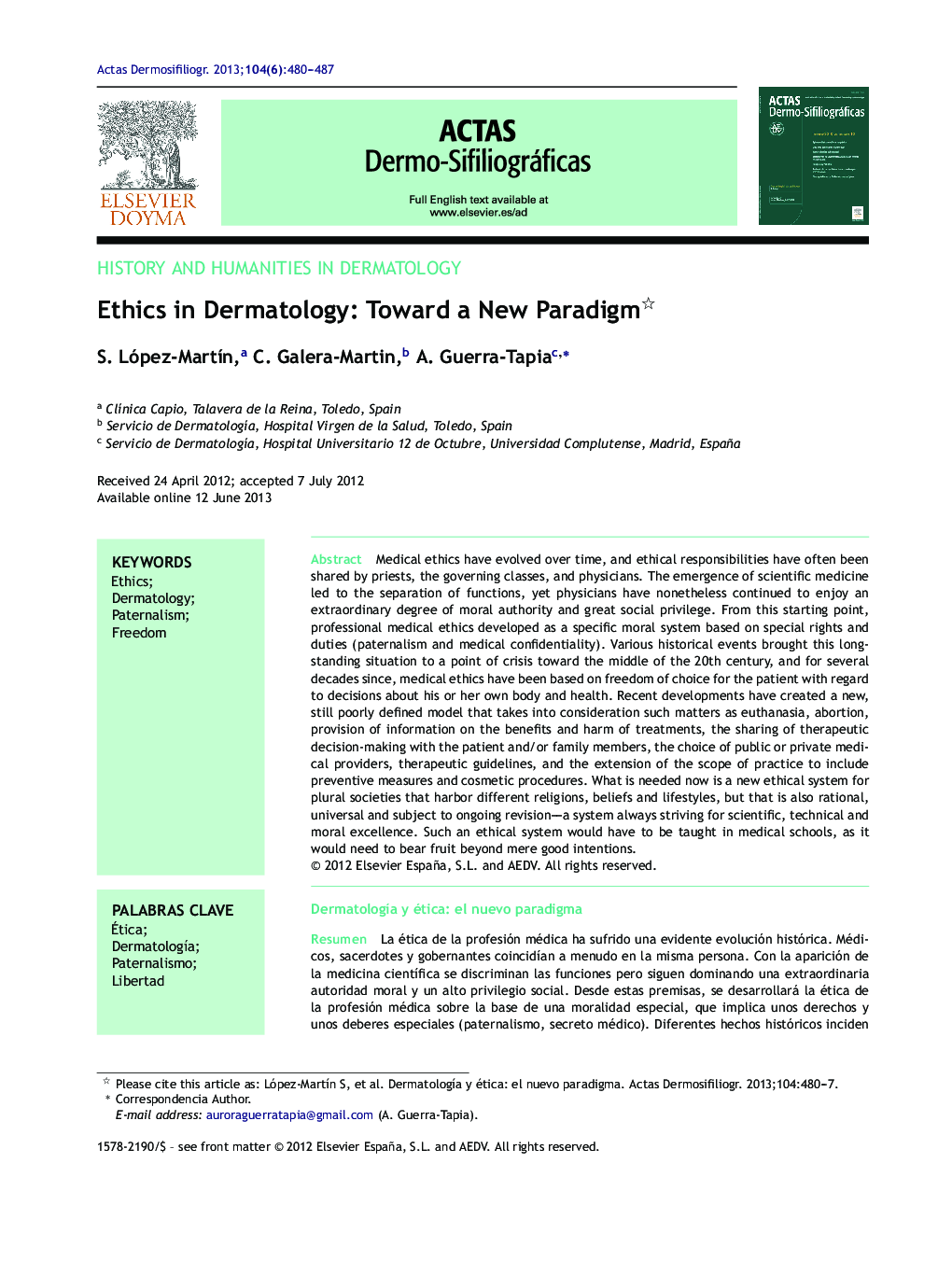| Article ID | Journal | Published Year | Pages | File Type |
|---|---|---|---|---|
| 3182883 | Actas Dermo-Sifiliográficas (English Edition) | 2013 | 8 Pages |
Medical ethics have evolved over time, and ethical responsibilities have often been shared by priests, the governing classes, and physicians. The emergence of scientific medicine led to the separation of functions, yet physicians have nonetheless continued to enjoy an extraordinary degree of moral authority and great social privilege. From this starting point, professional medical ethics developed as a specific moral system based on special rights and duties (paternalism and medical confidentiality). Various historical events brought this longstanding situation to a point of crisis toward the middle of the 20th century, and for several decades since, medical ethics have been based on freedom of choice for the patient with regard to decisions about his or her own body and health. Recent developments have created a new, still poorly defined model that takes into consideration such matters as euthanasia, abortion, provision of information on the benefits and harm of treatments, the sharing of therapeutic decision-making with the patient and/or family members, the choice of public or private medical providers, therapeutic guidelines, and the extension of the scope of practice to include preventive measures and cosmetic procedures. What is needed now is a new ethical system for plural societies that harbor different religions, beliefs and lifestyles, but that is also rational, universal and subject to ongoing revision—a system always striving for scientific, technical and moral excellence. Such an ethical system would have to be taught in medical schools, as it would need to bear fruit beyond mere good intentions.
ResumenLa ética de la profesión médica ha sufrido una evidente evolución histórica. Médicos, sacerdotes y gobernantes coincidían a menudo en la misma persona. Con la aparición de la medicina científica se discriminan las funciones pero siguen dominando una extraordinaria autoridad moral y un alto privilegio social. Desde estas premisas, se desarrollará la ética de la profesión médica sobre la base de una moralidad especial, que implica unos derechos y unos deberes especiales (paternalismo, secreto médico). Diferentes hechos históricos inciden en esta situación largamente mantenida llevando a una crisis de los paradigmas establecidos hacia mediados del siglo xx.Desde hace unas décadas, la ética médica se apoya en la libertad para elegir qué quiere uno hacer con su cuerpo y su salud. La eutanasia, el aborto, la información de beneficios y perjuicios, las decisiones terapéuticas compartidas con el enfermo y/o con sus familiares, la diferente elección en la sanidad pública o privada, la guías terapéuticas, la ampliación del ejercicio más allá de la enfermedad, llegando a la prevención y a la búsqueda de la belleza mediante técnicas estéticas, junto al papel trascendente de los gestores en la asistencia médica (recursos), entre otras cuestiones, crean un nuevo modelo todavía mal definido.Se hace necesaria una nueva ética plural que integre religiones, creencias y formas de vida diferentes, pero que a la vez sea racional, universal, sometida siempre a revisión, aspirante perpetua de la excelencia científico-técnica y moral. Esta ética debería además enseñarse en las facultades de Medicina, ya que debería ser mucho más que el fruto de unas buenas intenciones.
